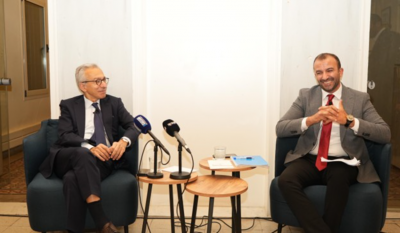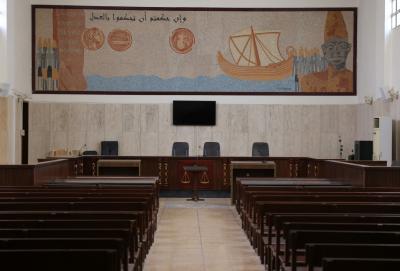Lebanon was once preparing to play a pioneering role in the digital education ecosystem. The country had the human resources and the spirit of initiative to turn ideas into tangible projects. Yet, the deterioration of conditions over the past years—culminating in the 2019 collapse—stripped Lebanon of its ability to lead regionally. Attempts over the past six years have largely proven fruitless.
In this article, academic and economist Pierre Khoury reviews global experiences in digital education, with the hope that Lebanon might adopt or draw inspiration from them to benefit from the ongoing digital revolution.
MOOCs: A Global Revolution in Learning
Massive Open Online Courses, commonly referred to as MOOCs, are educational programs offered online at no cost or at a minimal fee. Their distinguishing feature is accessibility: they are open to vast numbers of learners from across the globe. MOOCs go beyond recorded lectures, incorporating interactive activities, assessments, and discussion forums, allowing students to learn at their own pace.
Since their emergence in the early 2010s through platforms like Coursera, edX, and FutureLearn, MOOCs have transformed higher education by democratizing access. They have also sparked debates about their academic legitimacy and their potential to challenge traditional universities.
The recent honoring of Kazakhstan by Coursera, which awarded its higher education minister the “Learning Hero Award” for integrating digital education and expanding access to MOOCs, brings into focus the evolving relationship between universities and these platforms. Initially, in the West, MOOCs raised questions about accreditation, intellectual property, and certification. Soon, however, they became the site of a tug-of-war between private platforms and traditional universities. In the U.S., MOOCs gradually merged into formal pathways through programs like MicroMasters and Nanodegrees. Europe took a more cautious approach, relying on national and regional platforms—such as FUN-MOOC in France and Miríadax in Spain—to avoid dependence on American companies and educational systems.
Beyond the West: Strategic Leverage in the Global South
The most striking transformations, however, occurred outside the West, in countries often considered “peripheries” of the global educational order. In these contexts, MOOCs became strategic tools. Rwanda launched the Kepler program, combining global content with local support for students and refugees. Jordan established the Edraak platform, delivering open courses in Arabic and linking local universities to the global digital sphere. Nepal introduced open educational resources even in remote mountain villages through OLE Nepal.
In the Gulf, MOOCs were integrated into national transformation plans. The UAE’s “Madrasa” initiative and Saudi Arabia’s “Rwaq” platform both tied open education to workforce development and long-term economic visions. In North Africa, Morocco and Tunisia adopted more modest approaches, hampered by weak infrastructure.
Asia’s Expansive Experiments
Two standout examples emerged in Asia. India launched the SWAYAM platform, making MOOCs an official part of its university system by accrediting them toward academic credits. China, through platforms like XuetangX, embedded MOOCs into a national strategy for digital sovereignty and scientific advancement.
Southeast Asia pursued flexible models. Singapore linked MOOCs to its “SkillsFuture” program, which provides every citizen with a financial credit for lifelong learning. Malaysia introduced “Malaysia MOOC” as part of higher education policy, while Indonesia relied on open education to serve millions of students scattered across its islands.
From Resources to Policy
These experiences show how MOOCs have evolved beyond being auxiliary projects of American universities. They have become pillars of national education strategies across a growing number of countries. While the West created the platforms and ignited the debate, it is places like India, China, the Gulf, Kazakhstan, and Rwanda that have offered the most compelling proof: open education can drive profound transformation when embedded within a comprehensive national vision.
Dr. Pierre Khoury is a senior academic and economist
Please post your comments on:
[email protected]
 Politics
Politics













